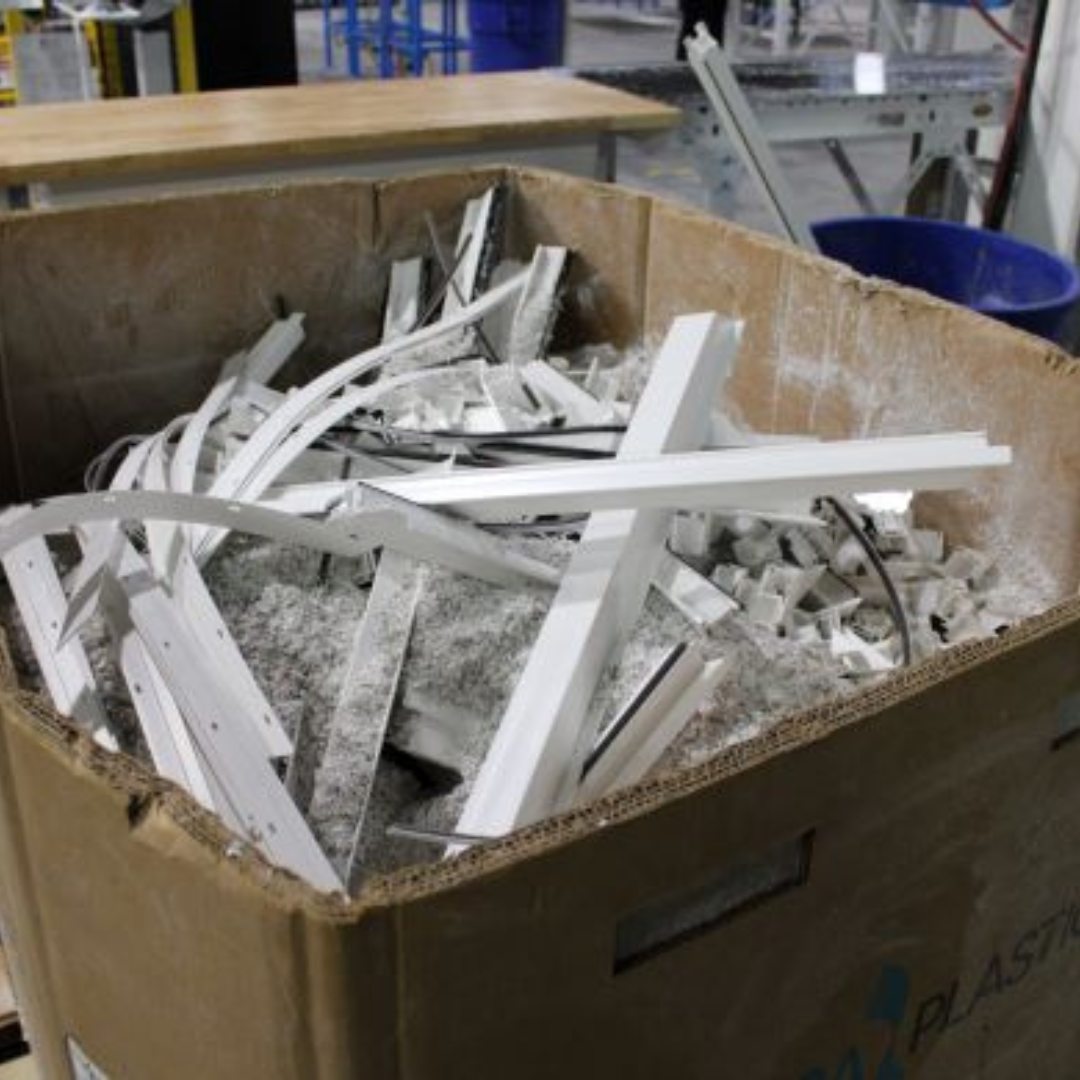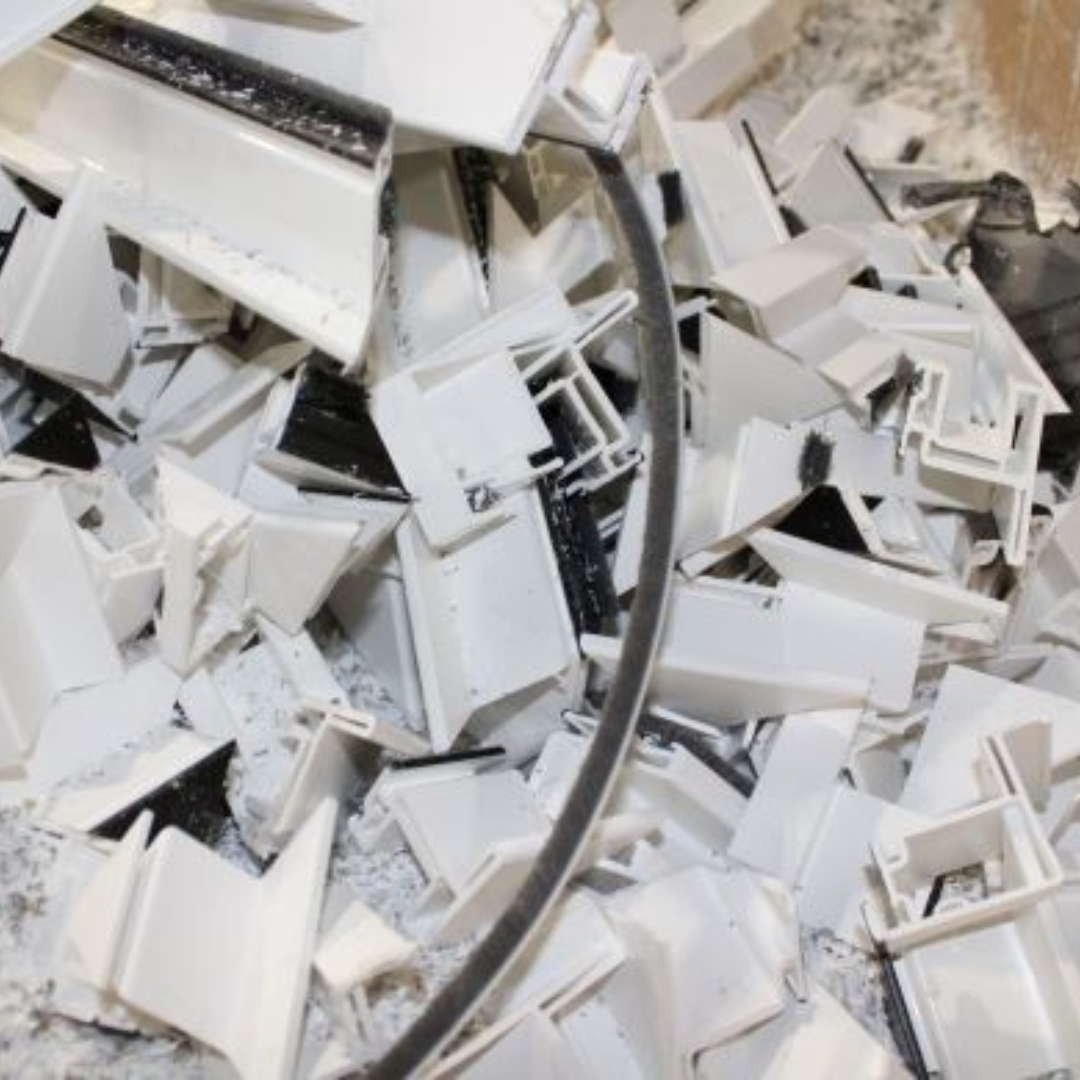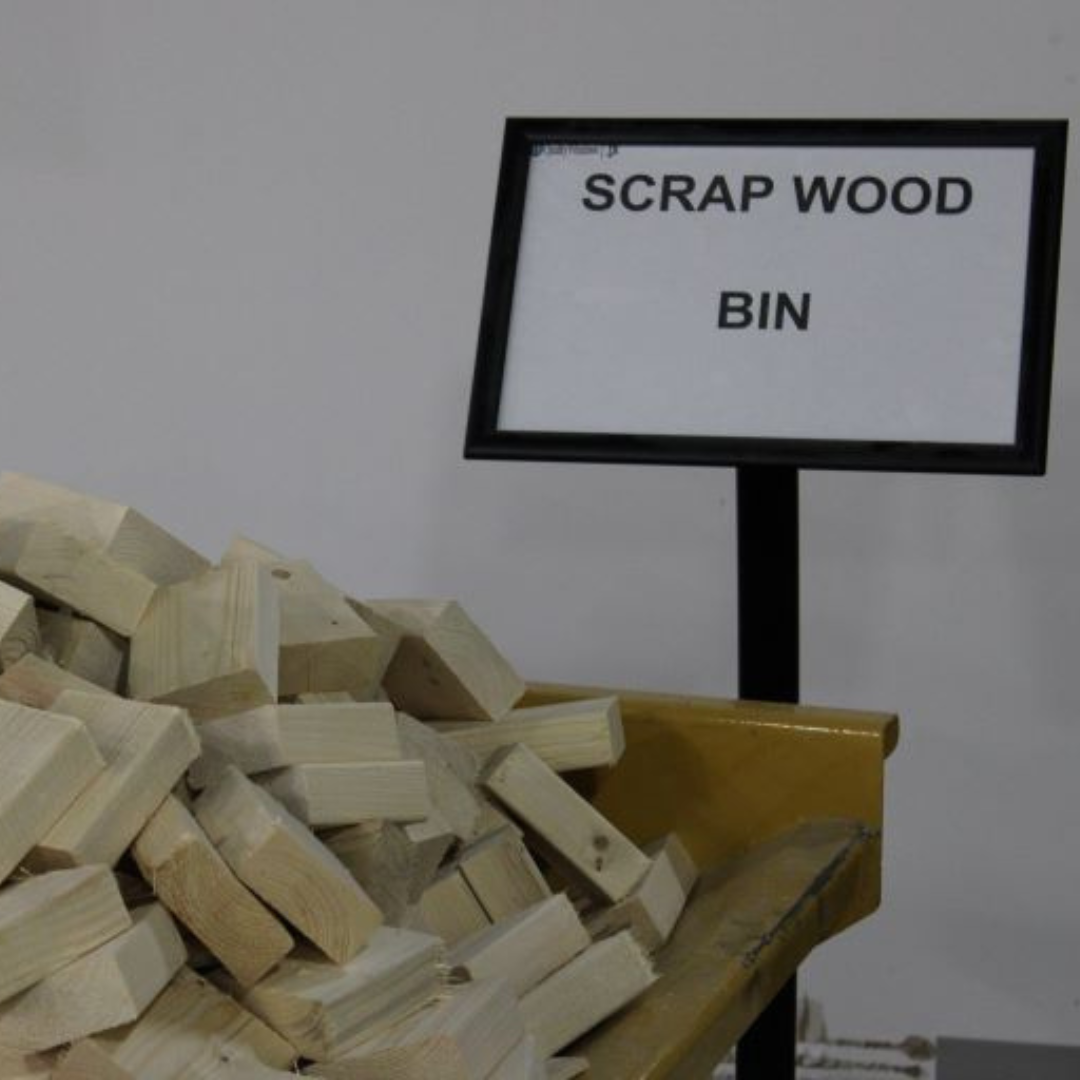JELD-WEN's VPI Windows plant is moving toward zero manufacturing waste as part of JELD-WEN's 2050 sustainability goals.
Aiming for net zero manufacturing waste
For example, the plant has made optimized cuts to the 2x4s that affix to window bases during shipment. The plant then uses the remaining scrap wood to anchor our products to shipping trucks, a creative solution to wood waste that simultaneously solves a pressing need to increase shipping security. The plant also produces vinyl products, using vinyl from a distributor that ships in sustainable packaging. This decision allows JELD-WEN VPI to send all dunnage to a recycling center, keeping it entirely out of the landfill. In addition, the team installed motion-activated LED lighting throughout the plant.

“We want to take sustainability to the next level, and VPI Statesville is an example of a facility that has ambitions and plans to get to zero waste,” said Farsad Fotouhi, VP, global ESG at JELD-WEN.
Our lean manufacturing and innovation teams regularly spend time in our plants, looking for opportunities to contribute and solve issues, including those related to our impact on the environment. After one such tour last year, our innovation team wondered if the wood waste generated at some of our facilities—some of which is difficult to recycle due to commingled materials or low demand for specific types of wood—could be used for another application. Our innovation team developed reuse solutions for our wood and fiber waste that reduce cost, reduce the environmental impact of wood sourcing, and decrease the amount of fiber waste sent to landfill.
“What can we do with that piece of scrap to better utilize it to reduce what is going out into a landfill is what we must be asking ourselves every day going forward,” said Jeff Mang, plant manager at VPI Statesville. “Every aspect of our process here in Statesville is looked at, evaluated, and updated to take the plant toward zero waste to the landfill, the JELD-WEN VPI ESG goal.”


